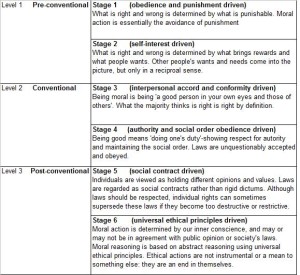Yes, I am referring to the everyday OTC drug that over 1/3 of American adults take regularly.
Most of us recognize Aspirin as a widely accessible over-the-counter drug that markets itself for helping daily pains such as a common cold or a headache. However, the accredited Agency For HealthCare Research and Quality published a decision analysis that linked the usage of Aspirin to the prevention of the fatal cardiovascular disease as well as colorectal cancer. Both cardiovascular disease and colorectal cancer adverse one another, which prompted me to look into if there is a connection between one and the other because of the potential linkage in the beneficiaries of Aspirin.
Miranda Hitti put out an extensive comparative article that expounds the notion behind both diseases intertwining with one another. Hitti explains that coronary arteries pump blood to the heart, which entails the heart to function adequately. If the arteries fail to do their job ,this would lead to a heart attack, therefore evoking heart disease, aka cardiovascular disease. Hitti’s findings are derived from a Hong Kong study (mentioned in her article) which initially exploited the linkage between the two. My meta-analysis on that will come later in the post. For now, back to the initial decision analysis mentioned beforehand.
The study first had to target a precise demographic in order to test its hypothesis, which presumably is that aspirin has an effect on the prevention of the aforementioned diseases. Notably, the null hypothesis would be that Aspirin has no effect. The demographic for this study included individuals between the ages of 40-79 with a 10 year cardiovascular risk subpar of 20%, no history of cardiovascular disease or cerebral hemorrhage . I thought the process of selecting a wide age gap amongst the demographic was imperative to the solidity of this study, as it allowed for results to be based off of an extensive range of ages, rather than focus on just one particular population set. The manipulative variable was the daily dose of Aspirin intake, which was never higher than 100mg per day, per individual. The time horizon was measured in 10 year, 20 year, and lifetime increments. The results of the experimental study were that benefits are predicted to exceed harms in taking aspirin for those in the previously mentioned age demographic who take aspirin solely for disease prevention over the course of their lifetime, without prior extensive bleeding risk. However, taking aspirin over the course of a smaller 10-20 year span show a drastic declination in benefits. Why is it that a longer usage of an OTC drug like Aspirin is more beneficial than short term usage? Let’s consider the demographic that this study conjuncts with. Those between 40-79 are of older age, which means that they process medication differently than lets say millennials. If taken daily for an extended period of time, pain medications can result in higher tolerance for those who take them as opposed to irregular scheduled intervals of taking the drug throughout a shorter time frame. Keyword, daily. Thus, the premises of the hypothesis shall be deemed correct or a false positive in regards to the final outcome. Nevertheless, other factors are still in play. Third variables such as inherently susceptible traits to the diseases could play a factor, as well as any other substances being taken throughout the study that were not mentioned. Reverse causation can be seemingly eliminated from a study such as this that contains large gaps of lackadaisical supporting detail to backup the findings. Thus, the rational person should not take Aspirin as a lifesaving drug based off of this study.
Back to Hitti’s post and kind of working backwards here, the Hong Kong based study connected heart disease and colon cancer together, in which the results would have prompted the previous study to have analyzed both collectively in relation to Aspirin.
The study was conducted by colleagues from the University of Hong Kong who gathered 706 native adult participants with an average age of 60 (which correlates almost verbatim in the above decision analysis, which contained a median age of 59.5). All of the participants qualified for one of three categories: those who have heart disease, those who do not have heart disease, and those who haven’t been screened for heart disease, which means they may have or have not qualified for the previous two categories had they been tested. Nobody had been taking Aspirin prior to the study either. The Hong Kong team ran tests on those with heart disease and found that 4% of them had colorectal cancer which resulted from heart disease, while the other two categories tested 2%> for heart disease. On a side note, those with a greater risk heart disease were those who are smokers, so all of this plays out to a domino effect, with the smokers setting off the chain reaction which leads to heart disease which leads to potential colorectal cancer.
In conclusion, the take away message from all of this can amount to a couple of things. First, the initial study did not prove that Aspirin is a cure for such diseases, although it did correlate with the hypothesis of the test. Secondly, it can also be said that smoking comes at a risk. Smoking can lead to cancer, which causes death, which makes smoking extremely hazardous. Smoking, however, is a personal choice, which makes it a low exposure. Any thoughts, suggestions, or anything of that nature? Please comment below!





 For the 4th grade assessment, over 6,900 public schools and over 530 private schools took the examination. The study took into deep consideration the demographics from each school, which most notably include any disabilities or those who identified as an English language learner.
For the 4th grade assessment, over 6,900 public schools and over 530 private schools took the examination. The study took into deep consideration the demographics from each school, which most notably include any disabilities or those who identified as an English language learner. 










